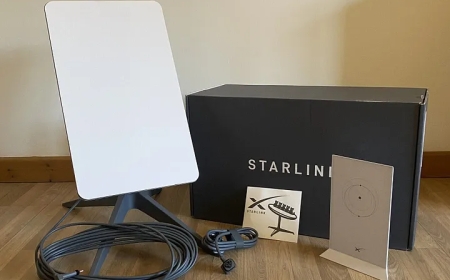All Licenses Required to Start a Business in Kenya And Their Charges in 2024
Learn about the licenses and permits necessary for starting a business in Kenya. Stay informed and avoid legal hurdles on your entrepreneurial path.

Starting a business in Kenya can be a thrilling endeavor. Still, being well-prepared and knowledgeable about the licenses and permits required to operate legally is essential. The entrepreneurial spirit in Kenya is palpable, with numerous success stories of individuals who built their empires from scratch. However, with research indicating that over 70% of startups still need to celebrate their third anniversary, it's clear that a solid foundation is crucial.
This article will explore the licenses and permits needed to kickstart your business journey in Kenya. From registration certificates to health permits, we'll cover everything you need to know to navigate the legal landscape and establish your enterprise on a solid footing.
Let us get started
READ ALSO: Unable to Link PayPal to M-PESA: Solutions and Workarounds
1. Registration Certificate/Certificate of Incorporation
Obtaining the appropriate registration certificate is your first step when embarking on your business journey. Depending on the nature of your business, you may choose either a sole proprietorship or a company structure. This certificate is known as the company registration certificate for companies, while individuals acquire the business name registration certificate. The Registrar of Companies oversees business registrations, and the process has become streamlined through the Ecitizen online platform. The registration fee is KSh 10,000 for all companies. It can be conveniently done online through a Safaricom mobile phone by dialing *271#.
2. NSSF and NHIF Registration
After successfully registering your business, you must ensure your employees' welfare by obtaining registration with the National Social Security Fund (NSSF) and the National Hospital Insurance Fund (NHIF). These institutions provide social security benefits and healthcare coverage, respectively. Registering for NHIF can be done online through the NHIF Selfcare Platform or by dialing *155# from any network. The initial payment is KSh 1,500, covering three months, with subsequent monthly payments of KSh 500. NSSF registration carries a cost of KSh 200.
3. KRA PIN Registration
The Kenya Revenue Authority (KRA) PIN is another critical requirement for your business. It's a mandatory step to ensure compliance with tax regulations. The PIN registration process for companies and partnerships is online via the iTax platform. The application involves completing an online form, submitting relevant documents, and receiving an acknowledgment receipt. This PIN is necessary for various financial transactions and interactions with authorities.
4. Business Permit
Once your business is registered, and you've secured the necessary social and healthcare registrations, you'll need a legal business permit. The cost of the license varies depending on the county and business size. For instance, in Nairobi, the fee is KSh 15,000, while in Isiolo, it's KSh 3,500. Different businesses might require specific regulatory licenses, such as those for food and health-related establishments. Additionally, fire prevention and safety certificates are essential for ensuring the safety of your premises.
Why Starting a Business Makes Sense
Starting a business might seem daunting, but it's a rewarding endeavor that can lead to financial stability and personal fulfillment. As you venture into entrepreneurship, you'll need to invest time, effort, and a modest amount of capital. The key is choosing a business idea that aligns with your skills, interests, and market needs. You can turn your investment into a thriving enterprise with careful planning and dedication.
If you're ready to embark on a business journey, here are some lucrative business ideas you can consider starting
1. Movie Shop: With the growing demand for Western films and TV shows, setting up a movie shop can be a brilliant business idea. You'll need a shop in a strategic location and a computer to provide access to entertainment that many people crave.
2. Salon/Barbershop: A small but profitable salon or barbershop can be started with around 50k. You can offer essential services like haircuts and expand as your business gains traction.
3. Hardware Store: Contrary to popular belief, starting a hardware store doesn't require a considerable capital investment. You can set up a shop in an urban area and offer essential hardware items.
4. Grocery Store: There's a constant demand for fresh produce in urban areas. Starting a grocery store with 50k can help you tap into this market and provide essential goods to your community.
5. Mobile Money Agent: As mobile money services continue to thrive in Kenya, setting up as a mobile money agent can be a profitable venture, especially in busy locations.
6. Farming: Agriculture is a cornerstone of the Kenyan economy. With access to land and water, you can start a farming business that yields high returns.
7. Milk Bar: Capitalize on the demand for fresh milk by starting a milk bar. Secure a reliable source of milk and offer a convenient solution for customers looking to buy quality dairy products.
8. Car Wash: A car wash business can thrive with the increasing number of vehicles on Kenyan roads. Starting with essential equipment and expanding over time can lead to a successful venture.
9. Second-Hand Clothes Store: The market for second-hand clothes is significant in Kenya. Sourcing affordable and fashionable clothing items can attract a steady stream of customers.
10. Fruit Vending: As health consciousness grows, so does the demand for fresh fruits. You can set up a fruit vending business, providing a healthy option to passersby.
11. Professional Cleaning Business: Cleaning services are in demand in residential and commercial settings. Offering professional cleaning services can lead to a thriving business with the right marketing strategy.
12. Boda Boda Business: Operating a motorcycle taxi service (Boda Boda) can be lucrative, especially in areas with limited public transport options.
13. Food Joint: If you have a knack for cooking, consider starting a food joint. Offering tasty and affordable meals in strategic locations can attract a loyal customer base.
14. Web Design and Digital Services: With the digital revolution, there's a growing need for web design and digital marketing services. Providing these services can open up a world of opportunities.
15. Nail Parlour: Starting a nail parlor can be a profitable venture if you're skilled in manicures and pedicures. Provide top-notch services and create a relaxing atmosphere for your clients.
16. Electrical Shop: As electricity becomes more essential, starting an electrical shop can offer a range of electrical items to meet the needs of homes and businesses.
17. LPG Gas Refill: Given the popularity of LPG for cooking, starting a gas refill business can provide a steady income. Ensure a consistent supply of gas and prioritize customer satisfaction.
18. Furniture Business: As the population grows, the demand for furniture increases. Start small by offering essential furniture items and expand as your business gains momentum.
19. Professional Shoe Shiner: Shoe Shining services are in demand, especially in busy urban areas. This low-cost business can yield good returns with the right location and quality service.
20. Cereal Shop: Basic food commodities like cereals are always in demand. Setting up a cereal shop can cater to everyday needs and offer convenience to your customers.
21. Daycare: If you are passionate about children's well-being, consider starting a daycare service. Create a safe and nurturing environment for children while their parents are at work.
22. Photo Studio: Photography services are essential for capturing special moments. You can offer photography services for various events with the right equipment and skills.
23. Pharmacy: While setting up a pharmacy requires more stringent regulations, it can be rewarding. Ensure you meet all legal requirements before diving into this business.
24. Tent and Chair Rentals: As events and gatherings continue, there's a demand for tent and chair rentals. Cater to event organizers by providing these essential items.
25. Bakery: If baking is your passion, starting a small bakery can be delightful. Offer a variety of baked goods to attract a diverse customer base.
26. Selling Handbags: The demand for trendy handbags is evergreen. Provide a selection of stylish and affordable handbags to cater to fashion-conscious customers.
27. Boutique: If you have an eye for fashion, opening a boutique can be fulfilling. Stock a variety of clothing items that appeal to your target market.
28. Printing and Photocopy Services: Despite the digital age, printing and photocopy services are still in demand. Offer these services in convenient locations to attract customers.
29. Perfume Refilling: Fragrance enthusiasts are always looking for affordable options. Offering perfume refilling services can cater to this niche market.
30. Shoe Selling Business: Capitalize on the never-ending shoe demand by starting a shoe-selling business. Choose fashionable and comfortable shoes to attract customers.
READ ALSO: PayPal M-PESA Paybill Number: How To Top Up, Withdraw, and Charges
Conclusion
Starting a business in Kenya requires more than a great idea; it demands a thorough understanding of the legal framework and the licenses necessary for smooth operations. Each step is vital in establishing your enterprise, from registration certificates and social security to health permits and business licenses. By adhering to the proper procedures and obtaining the requisite licenses, you set the stage for long-term success and contribute to the vibrant entrepreneurial landscape of Kenya.
FAQs
Why do I need a business permit?
A business permit is a legal requirement that permits you to operate within a specific jurisdiction and ensures compliance with regulations.
Can I register my business as a sole proprietorship online?
Yes, business name registration for sole proprietorships can be done online through the Ecitizen platform.
What documents are required for KRA PIN registration?
You'll need business registration certificate details, PINs of company directors, and their National IDs.
Are there different types of business permits based on industry?
Yes, certain industries require specific regulatory licenses, such as food and health permits for establishments dealing with consumables.
How can I ensure compliance with fire safety regulations?
Obtaining a fire safety certificate involves having fire extinguishers and meeting other fire safety requirements set by authorities.
Is a unified business permit applicable nationwide?
The unified business permit is specific to Nairobi County. It consolidates various licenses required for operating a business within that jurisdiction. Other counties may have their processes and requirements.












































































